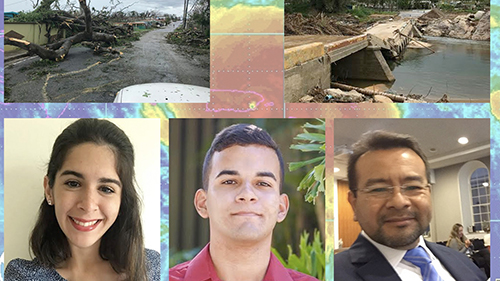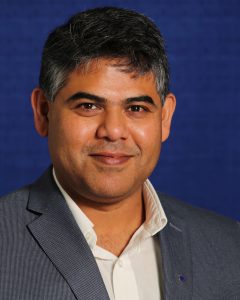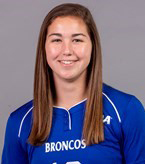
The Coastal Resilience Center’s participation in the annual Summer Research Team program will continue for a fourth year this summer, but will be done remotely as a response to the COVID-19 pandemic.
Three research teams from Minority Serving Institutions (MSIs) will work with CRC partners on novel research projects from June to August as part of the Summer Research Team (SRT) Program for Minority Serving Institutions. The program, administered by the Department of Homeland Security’s Science & Technology Directorate’s Office of University Programs and Oak Ridge Associated Universities, engages early career faculty, undergraduate and graduate students in research at the COEs, providing opportunities to better understand DHS mission and research needs and make advances in DHS research areas.
This year’s partnership includes:
- Mauricio Cabrera-Rios from the University of Puerto Rico-Mayagüez, who will pair with CRC Executive Director Tom Richardson and Education Director Dr. Robert Whalin of Jackson State University.
- Liping Liu of North Carolina A&T University, who will partner with CRC Lead PI and researcher Dr. Rick Luettich of the University of North Carolina-Chapel Hill (UNC).
- Sambit Bhattacharya of Fayetteville State University, who will partner with CRC researcher Dr. Brian Blanton of the Renaissance Computing Institute at UNC.

Dr. Cabrera-Rios, Mr. Richardson and Dr. Whalin will be working on a project called “Individual Emergency Response and Recovery: A learning experience from Puerto Rico’s encounter with Hurricane Maria.” Dr. Cabrera-Rios, a Professor of Industrial Engineering, will work with graduate student Véronica Diaz-Pacheco and undergraduate Frederick Gonzalez-Roman. The purpose of the project is to develop an operations research model capable of assessing the compounded wellness level of an individual in a crisis such as a hurricane.
“The motivation for this research is the experience of the participants from Puerto Rico during Hurricane María, which devastated the island in 2017,” Dr. Cabrera-Rios said. “With this information, the model will then prescribe the ideal times to make decisions critical for survival.”

Dr. Liu and Dr. Luettich will work on a project called “Combined Atmospheric-Storm Surge Modeling of Hurricane Florence (2018).” Dr. Liu, an Associate Professor of Applied Mathematics, will work with graduate student Tiana Johnson and undergraduate student Jackson Wiles to enhance research capacity at NCA&T and develop additional courses on severe weather and numerical prediction of those events.
“This is a cross-disciplined team consisting of mathematics and atmospheric science,” Dr. Liu said. “With the background in applied mathematics, we hope to strengthen our WRF (Weather Research and Forecasting) modeling skills and to learn the advanced ADCIRC model for accurate storm surge predictions.”

Dr. Bhattacharya and Dr. Blanton are collaborating on a project called “Hybrid Models in Artificial Intelligence for Storm Surge Prediction.” Dr. Bhattacharya, a Professor of Computer Science, will work with undergraduate students Raymond Kimble and Grace Vincent to use artificial intelligence and machine learning to create an advanced hybrid model which will be trained with experimental and simulated data to predict storm surge. Participating student interns will be trained in advanced areas of scientific computing and after its conclusion the project will generate ideas for future research projects.

“This project may create scientific approaches to increase the accuracy of storm surge prediction and may improve our ability to save lives and property,” Dr. Bhattacharya said. “It may also advance the state of the art in the application of artificial intelligence and machine learning to difficult scientific problems.”
In past years, CRC researchers hosted teams from Benedict (S.C.) College, Norfolk State University, Florida A&M University and Elizabeth City State University. More information can be found at https://www.orau.gov/dhseducation/faculty/.
